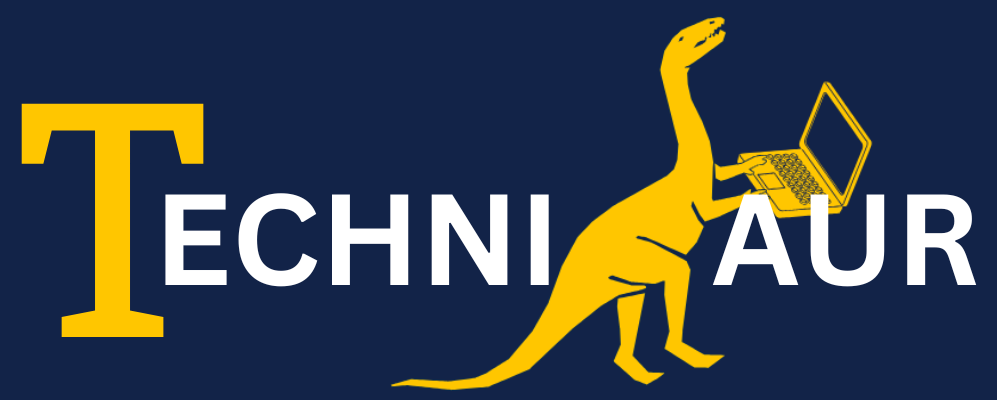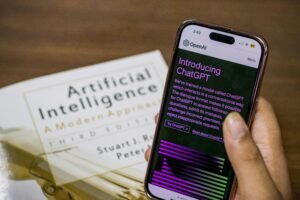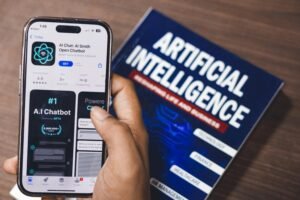Python Skills Every IT Graduate Needs in 2025 Python isn’t just another programming language—it has become the universal tool that ties the IT world together and fuels innovation across industries. For IT graduates stepping into the workforce in 2025, the reality is simple: employers don’t see Python as an “extra skill” anymore; they see it as the bare minimum.
From data analysis that helps businesses uncover insights to building and integrating APIs, designing clever automation scripts that save hours of repetitive work, experimenting with AI models, or developing applications with robust web frameworks, Python’s reach is everywhere. It’s the language behind today’s breakthroughs and tomorrow’s solutions. The real challenge for graduates is figuring out which skills within this vast ecosystem deserve their focus. So, where should you begin? Let’s break it down.
Why Python Still Rules in 2025
There are dozens of programming languages out there—Java, C++, JavaScript, Go, Rust—but Python continues to sit on its throne. Why? Because it blends simplicity with power.
Its syntax reads almost like English, which makes it beginner-friendly. At the same time, it has an endless ecosystem of libraries and frameworks, meaning you can use it for nearly anything—prototyping, production systems, even research.
Think about it. Your phone recommending what to watch next? That’s likely a Python model at work. Your bank detecting fraud? Python scripts analyzing patterns in real time. A hospital running diagnostic imaging? Again, Python behind the curtain.
So for IT graduates, knowing Python in 2025 isn’t a “bonus skill.” It’s an industry baseline. The graduates who go beyond the basics—those who actually apply Python to solve problems—will be the ones employers chase after.
1. Data Analysis: Making Sense of the Mess
If the 2010s were about collecting data, the 2020s (and especially 2025) are about making sense of it. Every business, from coffee shops to tech giants, is sitting on mountains of information. But without the right skills, that information is useless.
This is where Python comes in. Libraries like Pandas, NumPy, and Matplotlib allow you to clean, process, and visualize data in ways that Excel never could.
Imagine this: you join a retail company, and your first task is to figure out why online sales dipped last summer. You get a CSV file with 200,000 rows. To the untrained eye, it’s just chaos. But with Python, you filter out duplicates, check trends over time, and even run predictive models to see what might happen this summer. Suddenly, you’re not just an IT graduate—you’re a business problem solver.
Data analysis also feeds directly into AI. Clean, well-understood data is the foundation of every machine learning model. If you can wrangle messy datasets into meaningful insights, you’ve already mastered one of the most marketable skills for 2025.
Pro tip: Start with simple projects—like analyzing movie ratings or tracking your own spending habits—before moving into complex predictive analytics.
2. APIs: The Language of Digital Ecosystems
The modern internet is stitched together by APIs. They let different applications talk to each other, share data, and create seamless user experiences. And the good news? Python makes interacting with APIs incredibly straightforward.
Take the Requests library. With just a few lines of code, you can pull live data from almost any service. Want the latest weather updates? Call a weather API. Need cryptocurrency prices? Fetch data from a finance API. Building an app that requires maps? Plug into Google Maps API.
Here’s the reality: almost every IT role in 2025 touches APIs in some way. System administrators automate API calls for cloud services. Data analysts pull data from APIs for real-time dashboards. Developers integrate APIs to handle payments, messaging, or customer service bots.
I remember the first time I worked with APIs—it was pulling tweets from Twitter to analyze trending hashtags. It felt like magic. But it also showed me how much power APIs give you to connect systems and unlock opportunities.
For graduates, being able to understand, consume, and even design APIs is a critical skill. It’s not just about writing code—it’s about making systems communicate effectively.
3. Automation: Why Work Harder Than You Have To?
One of Python’s superpowers is automation. Let’s be honest—most IT jobs involve repetitive tasks. Updating databases, renaming files, generating reports, sending notifications—the kind of work that eats up hours and drains motivation.
With Python, you can turn those mindless chores into one-click processes. Tools like Selenium let you automate web interactions. BeautifulSoup helps scrape information from websites. Even a simple os script can batch-rename thousands of files in seconds.
In 2025, companies prize efficiency more than ever. They don’t just want workers—they want problem solvers who can save time and money. If you can automate reporting so managers get their data at 8 a.m. sharp without anyone lifting a finger, you’ve instantly made yourself indispensable.
Here’s a small personal story: back in my university days, I wrote a Python script that sorted my messy downloads folder into subfolders by file type. It sounds trivial, but it saved me from searching through hundreds of files every week. That little script sparked my love for automation—and now I can’t imagine working without it.
If you’re an IT graduate, don’t overlook this area. Start by automating your own tasks. Once you see how much time you save, you’ll understand why employers value automation skills so highly.

4. AI: Riding the Wave of the Future
Artificial Intelligence is no longer “the future”—it’s the present. From chatbots to recommendation engines, AI systems are everywhere, and Python is their favorite language.
Libraries like TensorFlow, PyTorch, and scikit-learn have lowered the entry barrier. You don’t need to be a math genius to start experimenting with AI models. In fact, many IT graduates have already built chatbots, spam filters, and even image classifiers as student projects.
But here’s the catch: AI isn’t just about cool demos. In real jobs, it’s about solving business problems. Hospitals might use AI models to detect early-stage diseases from scans. Banks rely on AI to spot fraudulent transactions. E-commerce companies personalize product recommendations with machine learning.
For graduates, having hands-on experience with AI—even small projects—can make your resume stand out. Employers in 2025 aren’t necessarily expecting you to invent the next ChatGPT. But they do want to see that you understand the basics: training a model, evaluating accuracy, and integrating it into applications.
Insider tip: Start small. Train a sentiment analysis model on movie reviews, or build an AI that predicts house prices. These projects teach you fundamentals while giving you something tangible to showcase.
5. Web Frameworks: Building the Digital Backbone
Even with all the hype around AI and automation, web development remains a cornerstone of IT. Companies will always need websites, dashboards, and apps. And in Python, that means knowing your way around web frameworks like Django, Flask, and FastAPI.
- Django is the full-stack powerhouse. It comes with built-in features for security, user authentication, and database management. If you’re building something large and complex—say, an e-commerce site—it’s your best bet.
- Flask is lightweight and flexible. Perfect for smaller apps or projects where you want more control. It’s also a great starting point for learning how web apps are structured.
- FastAPI is the rising star, known for its speed and efficiency. It’s designed for building APIs quickly, which makes it ideal in an API-driven world.
For IT graduates, even basic knowledge of a framework is a career booster. Why? Because web apps often bring everything together. You might use Django to host an AI-powered recommendation system, or Flask to expose your data analysis results through a dashboard. In practice, web frameworks turn isolated skills into complete, usable products.
6. The Career Edge: Why These Skills Matter to Employers
Let’s zoom out for a moment. Why do these Python skills matter so much?
Because companies in 2025 aren’t hiring graduates to just “write code.” They’re hiring problem-solvers who can bridge multiple domains.
- A graduate who knows data analysis can guide decisions.
- Someone skilled in APIs can connect systems seamlessly.
- An automation expert saves hours of labor.
- With AI, you’re pushing the company into the future.
- And through web frameworks, you make solutions accessible and real.
Employers don’t just want Python on your resume. They want stories. They want to hear about the time you built a script that saved your professor hours of grading, or the dashboard you designed for your internship team. Real projects prove that you don’t just “know Python”—you use it to make life easier.
7. How to Actually Build These Skills
If all this sounds overwhelming, don’t worry—you don’t need to master everything overnight. The key is steady progress and practical projects.
Here’s a roadmap:
- Start small. Analyze your own expenses with Pandas. Build a to-do app with Flask. Automate your email filters.
- Move into challenges. Try Kaggle competitions for data analysis. Connect to public APIs and build dashboards.
- Experiment with AI. Train a model to recognize handwritten digits or classify songs by genre.
- Contribute to open source. Even fixing small bugs in libraries teaches you collaboration and industry standards.
- Show your work. Post projects on GitHub, write about them on Medium, or record short demos on LinkedIn.
The point is not to become an overnight expert. The point is to grow through curiosity and practice.
Final Thought
Python is no longer optional—it’s the heartbeat of modern IT. For graduates in 2025, knowing the basics won’t cut it. You’ll need to show comfort with data analysis, a knack for building and using APIs, an eye for automation, curiosity for AI, and the ability to build with web frameworks.
But here’s the secret: it’s not about being perfect. It’s about being willing to learn, experiment, and adapt. If you can do that, you won’t just keep up with the industry—you’ll help shape where it’s going.
Frequently Asked Questions (FAQ)
1. Why is Python so important for IT graduates in 2025?
Python is everywhere—from data analysis to AI—and employers see it as a must-have skill. Its versatility means graduates can work across industries without learning multiple languages. Companies prefer candidates who can apply Python to solve problems, not just write basic code.
2. Which Python skill should I learn first as a graduate?
Start with data analysis. It’s practical, beginner-friendly, and directly connects to real-world applications. Learning libraries like Pandas and NumPy helps you understand data, which is also the foundation for AI and automation. Once comfortable, move on to APIs, automation scripts, and web frameworks.
3. Are Python web frameworks necessary for all IT graduates?
Not every graduate will be a full-time web developer, but knowing frameworks like Django or Flask is still valuable. They teach how back-end systems connect, how APIs integrate, and how to deploy applications. Even basic experience with web frameworks boosts collaboration and employability in tech teams.
4. Can Python help me land a job in AI?
Yes, absolutely. Python dominates AI and machine learning thanks to libraries like TensorFlow, PyTorch, and scikit-learn. Even small projects—like chatbots or image classifiers—show employers you understand how AI works. You don’t need to be an expert; demonstrating curiosity and hands-on experience goes a long way.
5. How do I showcase my Python skills to employers?
Build projects and share them. A GitHub portfolio with data analysis notebooks, automation scripts, or small web apps makes your skills visible. Employers value proof over claims. Even personal projects, like expense trackers or dashboards, show initiative and practical application—exactly what recruiters want to see.





